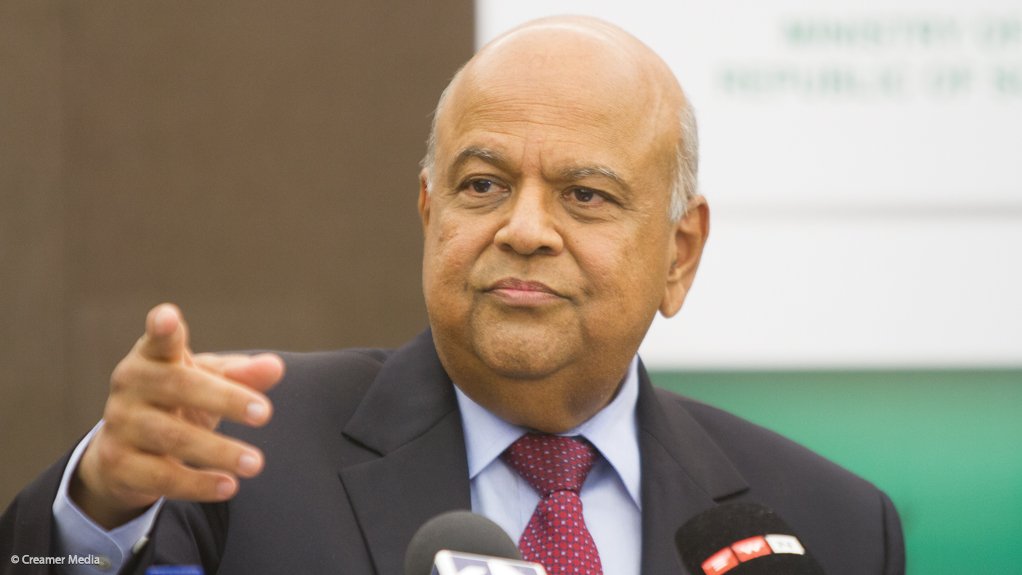Public Enterprises Minister Pravin Gordhan acknowledged that Eskom is in crisis but has dismissed suggestions that the utility is broken and heading for a “protracted failure”, saying that the restructuring under way will result in the emergence of a “completely different entity”.
Speaking at the tail-end of a heated debate on the electricity crisis, in the National Assembly, Gordhan acknowledged that Eskom’s current predicament had its roots in a failure by the African National Congress-led government to react quickly enough to warnings of an impending power shortage, as well as its failure to implement the 1998 White Paper.
The crisis had been accentuated, however, by years of State capture, which Gordhan said President Cyril Ramaphosa’s administration was committed to eliminating.
Quoting from the recently published Zondo Commission report into State capture at Eskom, Gordhan said the evidence pointed to a clear scheme to remove board members and executives that refused to cooperate with the Gupta family’s plan to steal taxpayers money.
Such actions, together with the abuse of procurement processes and internal controls, had a direct impact on the poor operational and financial performance of Eskom and other State-owned entities.
“It is this ANC administration, starting in 2018, that takes the responsibility to ensure that, in time, there will be energy security, and that it will transform Eskom.
“We take the responsibility for whatever has been done, but we will cure whatever has been done, given the time and the effort that we will put in.”
Gordhan urged lawmakers and citizens to show greater solidarity with the current Eskom management and employees, who were working under trying circumstances, including years of maintenance neglect, to address the risk of load-shedding, which had intensified over the past three years.
“Is Eskom broken or dysfunctional,” Gordhan asked rhetorically.
“Eskom is not broken. It is not dysfunctional, but it does have a crisis and it does have a series of challenges . . . [which] will take time to resolve.”
He said that between 4 000 MW and 6 000 MW of new generating capacity was urgently required to provide the utility with the time and space it needed to stabilise parts of the aged coal fleet.
“[So], is there a threat of a protracted failure of Eskom?
“No, because ultimately the Eskom that we know today, won't be the Eskom that you will recognise in ten years’ time – it will be a completely different entity,” Gordhan said, alluding to the unbundling of the vertically integrated utility into three businesses of generation, transmission and distribution.
Parliamentarians, meanwhile, expressed strongly divergent views over the causes of, as well as possible remedies for, the ongoing electricity crisis in a debate held at the request of Inkatha Freedom Party MP Mkhuleko Hlengwa.
Hlengwa, who courted controversy recently as a result of a heated exchange, for which he later apologised, with Eskom board member Busisiwe Mavuso during a Standing Committee on Public Accounts oversight visit, bemoaned the seeming lack of urgency in tackling the crisis.
He pointed to the high economic and social costs of ongoing load-shedding, which was being implemented at Stage 2 during the debate.
“The complete lack of progress, or positive change in the functioning of this entity [Eskom], seem to indicate that both the upper management and the board are sitting on their hands rather than making difficult decisions needed to steer us in the right direction,” Hlengwa asserted.
He added that South Africa’s economic recovery depended on stable electricity supply and that “load-shedding, therefore, cannot become South Africa's default position”.
The Democratic Alliance Kevin Mileham also urged greater urgency and called on ANC Ministers to remove the “ideological blinkers” that were preventing them from taking the actions required to arrest the crisis.
“We can't afford to wait.
“If we are to address poverty and unemployment in South Africa, it's time this government got out of the way and allowed the private sector and municipalities to do what it is clearly unable to do: give power to the people,” Mileham argued.
However, Economic Freedom Fighters MP Omphile Maotwe argued that the problem lay with Eskom’s current leadership and called for the axing of CEO André de Ruyter and COO Jan Oberholzer.
She also described the unbundling of the utility as “misguided and corrupt” and called on government to honour its commitment to review all public-private partnership contracts.
Nevertheless, Maotwe advocated for a build-operate-and-transfer model to “seriously upscale the process of a nuclear energy build in a fiscally responsible manner”.
“This can be done through a build, operate and transfer model.
“China has an enormous capacity to intervene immediately.
“Why are you not engaging China in this regard,” she asked.
EMAIL THIS ARTICLE SAVE THIS ARTICLE ARTICLE ENQUIRY
To subscribe email subscriptions@creamermedia.co.za or click here
To advertise email advertising@creamermedia.co.za or click here











